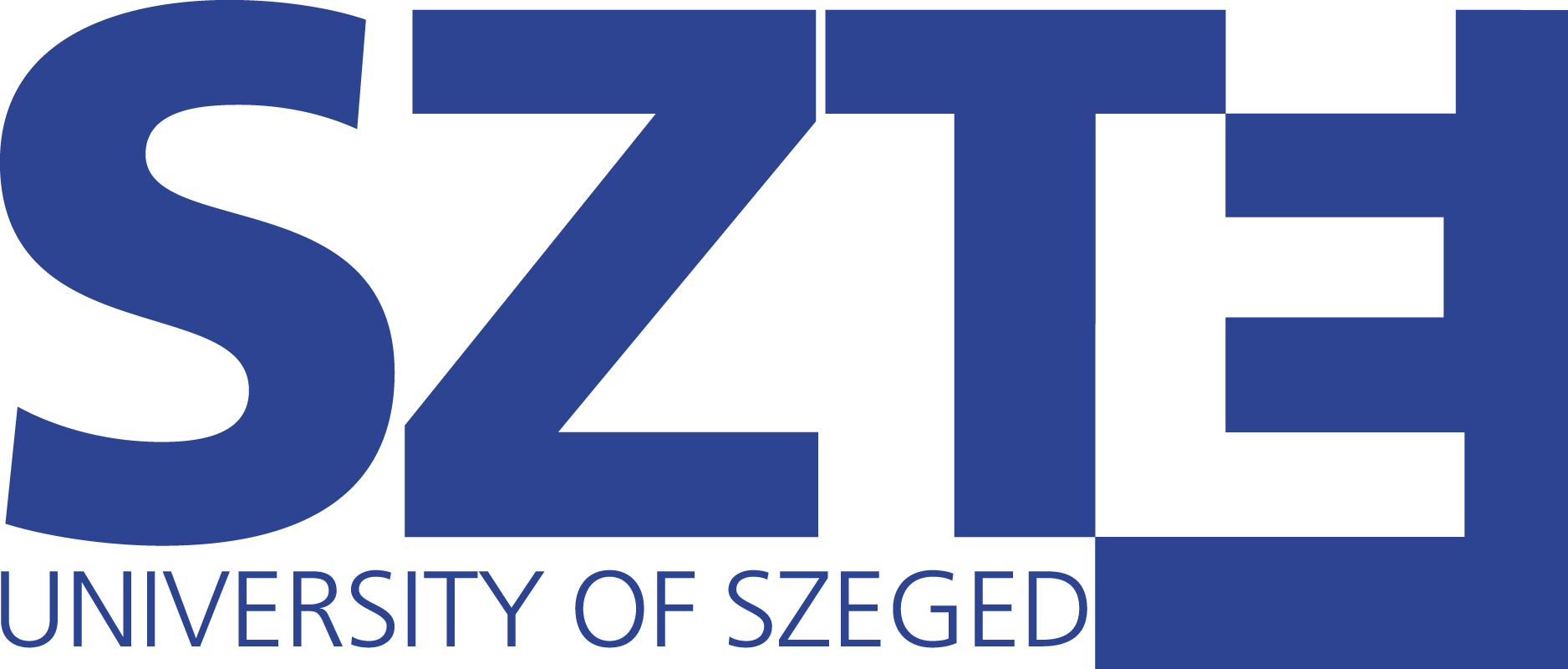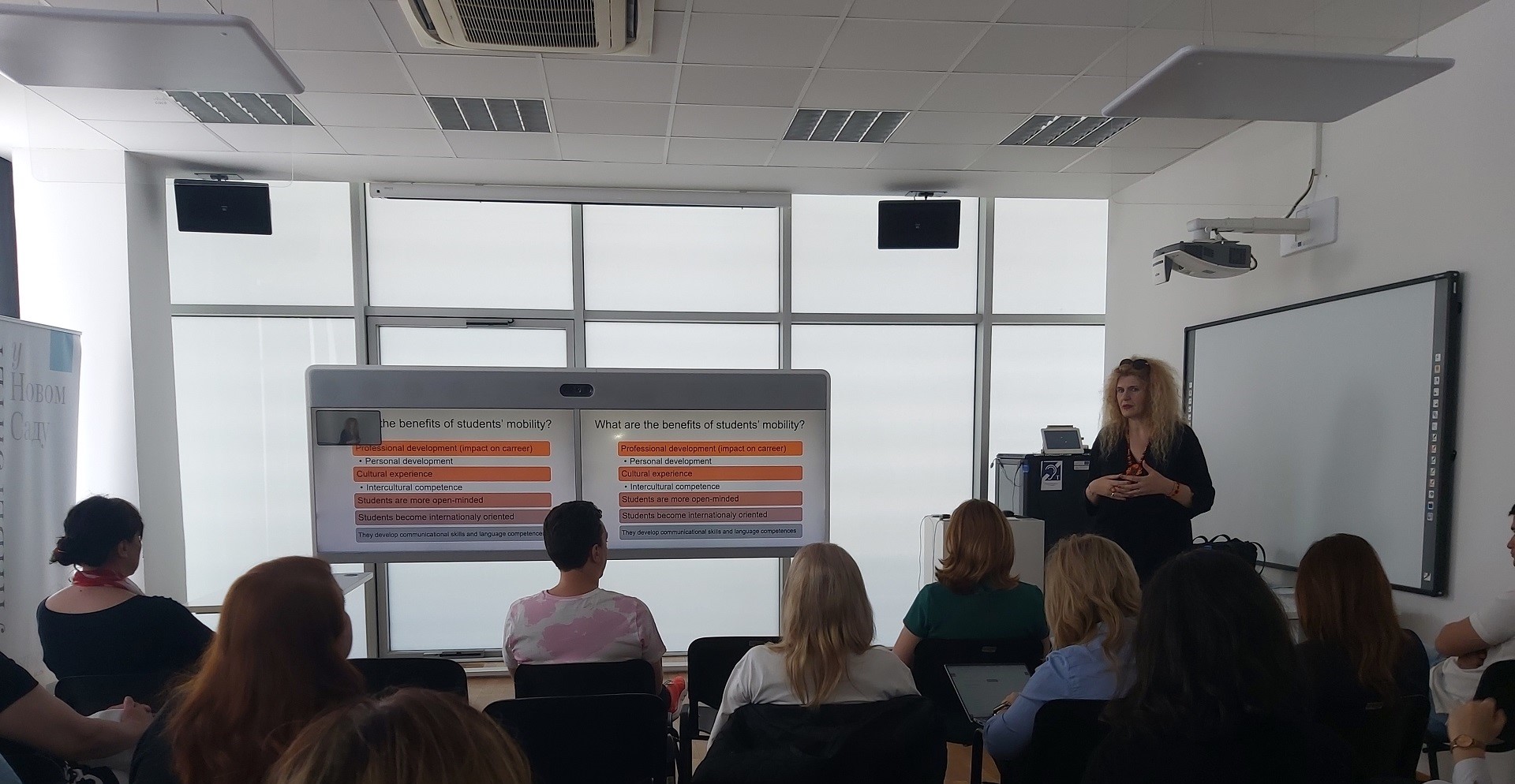
In the framework of a five-day, intensive conference, specialists in Novi Sad explored the internationalization of universities. The participants, including representatives of the University of Szeged, acquired many useful experiences and new, personal and professional relationships.
We asked representatives of three different fields about how useful they found the Erasmus+ Blended Intensive Program organized by the University of Novi Sad (UNS), which was entitled "Internationalisation as a Measure of Quality in Higher Education, Science and HE Services". Important topics, illuminated from different aspects, and interactive workshops alternated during the five-day event — which ended on Friday — with impacts and benefits that will be felt well in the future. We asked a researcher, a lecturer, and a head of office from the 9-member delegation of the University of Szeged about the importance of the conference.
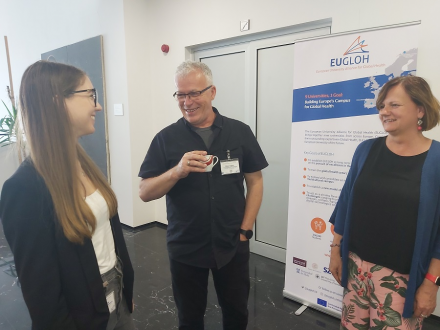 Dr. Anita Kéri, Dr. Lajos Rácz, and Dr. Anikó Vida both gained new experiences. Photo: Ferenc Lévai
Dr. Anita Kéri, Dr. Lajos Rácz, and Dr. Anikó Vida both gained new experiences. Photo: Ferenc Lévai
"I have already worked with colleagues from Novi Sad in the framework of the EFOP project, and I wanted to get to know this university with serious potential even better. As a geographer, I have no doubt that you cannot get to know anyone and anything thoroughly from across the table, so you have to come and personally experience how this academic culture works. We can also interpret the students as the connecting link between our universities since a large number of students from Novi Sad have participated in the various SZTE programs in the past. I also think it is important to get to know and experience what kind of educational environment, with what kind of training, and with what kind of background the students from here come to Szeged, because we, as a service provider university, have to adapt our offer to them. Due to my professional interests, the environmental protection, green, sustainability, and related programs were the most interesting for me, since my academic qualification gives me the greatest insight into this area. Personal relationships also help us to connect real persons and faces to names, logos, and denominations when we think of a cooperating institution" said Prof. Dr. Lajos Rácz, head of the Institute of Applied Social Sciences and Minority Politics at SZTE Juhász Gyula Faculty of Education.
"As a higher education internationalization researcher, I find the BIP program very useful, because we can learn about the importance of internationalization from many aspects, for example through the perspectives of the number of foreign students, the internationalization of professors, and even environmental protection. It is interesting to see how the international office at UNS works and what its goals are. I got to know many foreign colleagues from the participating universities, so during the mobility I expanded my international and SZTE institutional contacts. I got to know new points of view that can influence my further research directions, for example, the integration of sustainable development goals into education and internationalization, and I will be able to take them into account when planning the material of my courses. For me, Prof. Dr. Biljana Radić Bojanić's lecture entitled 'Benefits of Erasmus+ Mobility for Teachers' was the most interesting" summarized Dr. Anita Kéri, assistant professor at the University of Szeged Faculty of Economics and the communication associate of EUGLOH at SZTE.
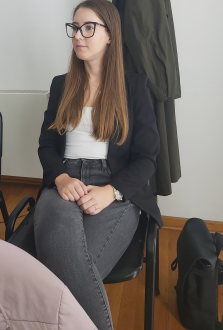 Dr. Anita Kéri was one of the most active participants in many workshops. Photo: Ferenc Lévai
Dr. Anita Kéri was one of the most active participants in many workshops. Photo: Ferenc Lévai
This was the first Blended Intensive Program I participated in and I acquired useful new experiences. We were able to learn about the plans of the University of Novi Sad regarding the internationalization of an institution, certain elements of which we can also use in our own strategy. It was interesting to see that the number of their foreign students is similar to that of SZTE, but most of them come from former Yugoslav member states, so they work and think in a completely different system than we do. Our attention was drawn to certain institutional relations with universities operating in regions such as Latin America or Asia, which are also in our field of interest, which makes it even more justified to strengthen our relationship with the EUGLOH 2.0 university that is already closest to us. Sharing experiences can open new doors to areas where we are not yet or are less represented. The citizens of the university, including lecturers, researchers, and students, can benefit enormously from the new connections, as the range of mobility opportunities can also become wider. The most interesting program for me was the series of lectures I attended in the Science Park, where new tools and technologies were presented, such as 3D printing and its potential" said Dr. Előd Szabó, head of the Office for International Cooperation and Admission of the International and Public Relations Directorate of SZTE, also a member of the delegation.
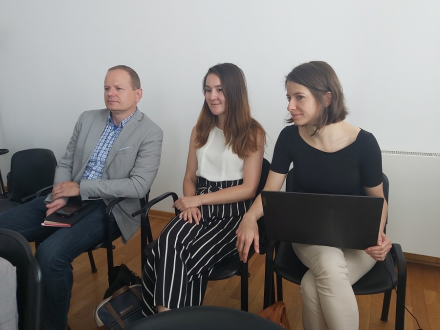
Dr. Előd Szabó, Annamária Szécsi, and Rebeka Fodor-Kozma represented the International Cooperation and Admission Office of the International and Public Relations Directorate of SZTE. Photo: Ferenc Lévai
In addition to EUGLOH 2.0 universities, invited higher education institutions took part in the event, so experts in the field of international education also came from Spain, Portugal, Finland, Croatia, Romania, and Hungary.
*Cover photo: Prof. Dr. Bojana Kovacevic-Petrovic reported on her own and her students' experiences in Mexico in her presentation.
Photos by: Ferenc Lévai
